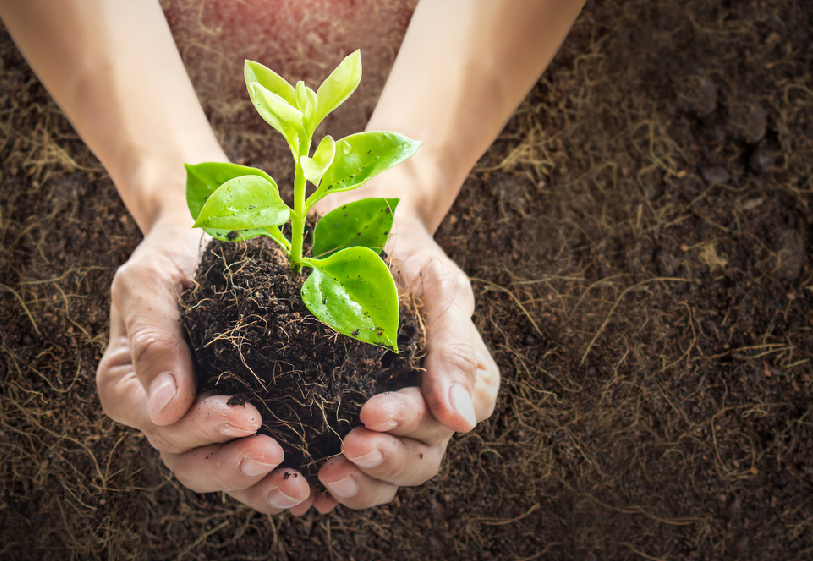
Sustainable agriculture
Sustainability in any industry is a very important issue that should be considered before starting anything. The agricultural industry is also very important in the industrial world and accounts for a large part of exports, so the study of issues such as sustainability can certainly be very effective in its success and achievement.
The term, which has become very common in recent years, is used today to describe a wide range of topics. But we want to know what the issue of sustainability is all about and what impact it actually has on the agricultural industry. If you are also interested in this discussion and want to succeed in your work and become more familiar with this topic, stay tuned for the rest of this article.
What is sustainable agriculture?
Agriculture, using the principles of ecology, the study of relationships between living things and their environment is called sustainable agriculture.
If we want to have a simple definition of this issue, we must say that sustainable agriculture is in fact a kind of agriculture, and this word refers to uniform and stable conditions. In fact, sustainable agriculture enables us to produce, use and enjoy healthy, quality food without compromising the ability of future generations to produce food. Also produce this healthy food using farming techniques that protect the environment, animals and most importantly public health.
As you read, this method is undoubtedly very different from industrial agriculture. Because in this method, natural and chemical-free foods are replaced by foods grown with pesticides and chemical fertilizers. Industrial agriculture is highly dependent on pesticides, chemical fertilizers and chemical enhancers. Below are more benefits of sustainable agriculture.
Benefits of sustainable agriculture:
As mentioned above, sustainable agriculture can be beneficial in preventing pollution, reducing costs, protecting the environment, guaranteeing public health, protecting animals, and so on. But what does it mean to be useful in each of these cases?
Pollution prevention: In this type of agriculture, the waste produced within each farmland remains in the ecosystem of the same land and pollution is prevented.
Cost reduction: Fossil fuels are very important and costly in this industry. Sustainable agriculture reduces the human need for fossil fuels. As a result, costs are lower, which benefits farmers.
Protecting the environment: Humans need healthy land and climate to survive. The environment plays an important role in meeting the needs of human beings, and future generations need a healthy environment to live. Sustainable agriculture helps revitalize the land and other natural resources such as the climate.
This replacement will ensure the survival of future generations and the existence of natural resources for them. Sustainable agriculture reduces the need to use non-renewable energy sources and thus benefits the environment.
Guarantee of public health: It was said that chemicals, chemical fertilizers and pesticides are used in industrial agriculture. Since most people today are looking for organic products to use, sustainable agriculture is making healthier products available to consumers.
This method, if accompanied by careful management of the farmer, can protect the crop from pathogens, toxins and other dangerous contaminants, and thus improve the health of consumers.
Animal protection: The methods used by farmers and ranchers in the field of sustainable agriculture ensure the health and safety of animals.
But what to do and how to behave to achieve this goal to be able to enjoy all these benefits. We have dealt with this issue below.
Sustainable agriculture methods:
In order to achieve sustainable agriculture, methods should be considered, such as soil enrichment, periodic cultivation, integrated and centralized pest management, natural pest predators, vegetation (cover cultivation), which are briefly described below. There are explanations about this.
Soil enrichment: In agriculture, soil enrichment is very important. Healthy soil increases the yield of the land and as a result produces a better product. Some methods of increasing soil quality are: Leaving crop residues (in the ground) after harvest and using plant material compost or animal manures.
Crop rotation: One of the most powerful sustainable farming techniques is periodic planting. In this way, if instead of replanting one crop for several consecutive years, he chooses another crop to plant, the problems related to pests will be solved. Because if pests have a stable food source, they can greatly increase their population. This type of planting can end the pest cycle.
Integrated and centralized pest management: This method also emphasizes the importance of periodic cultivation to compete with pest management. In cases where the problem of pests is not solved by the usual methods, chemicals are used. Integrated pest management is an approach that relies on biological methods instead of chemical methods.
Sustainable agriculture is a biological process that seeks to mimic key features of an ecosystem. Sustainable agriculture complicates the crop ecosystem, increases the efficiency of nutrient rotation in this type of agriculture, and the sun is used as the main source of energy to move the optimal exploitation system.


